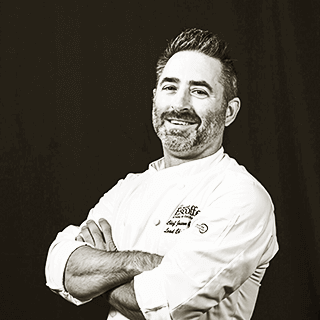If you’re infatuated with the world of health and intrinsically enjoy helping others reach their wellness goals, becoming a health coach could be the right path for you. Plus, according to the U.S. Bureau of Labor Statistics, of health education specialists and community health workers in particular is expected to keep growing at an exponential rate of 12% until 2031, which is much faster than the average of all occupations.
With the right research, education, and planning, you can also establish exactly where you want to work—potentially including the flexible option of self-employment. If this piques your interest, let’s explore how to start a health coaching business and the next steps you can take.
1. Get the Right Education and Training
As a health coach working directly with clients, you likely won’t concentrate on just one aspect of health, such as fitness. Health coaches may examine the wider wellness picture that encompasses everyday nutrition, lifestyle, movement, stress management, and more. In order to become well-versed in all of these concentrations and help clients professionally, it’s critical to get the right education and training first.
Although there isn’t a concrete degree requirement to begin a health coaching business, getting an education in health and wellness can help you grasp the fundamentals and could prepare you for The National Board for Health and Wellness Coaching national certification—an accolade that most health coaches strive to secure before working one-on-one with clients.
So what type of credible education can prepare you for this certification? Students enrolled in Escoffier’s Holistic Nutrition & Wellness program can dive into a well-rounded curriculum that starts with a foundation in healthy cooking methods. From there, they can explore essential entrepreneurial skills, such as pitching a business idea to investors, coaching, and interpersonal influence.
“A distinguishment of the Holistic Nutrition and Wellness programs is the intersection of multiple disciplines: we can teach classical culinary techniques alongside foundational nutrition information and integrative approaches to wellness. We’re uniquely positioned to help students navigate cooking for health and how other forces influence a person’s lifelong well-being. Learning these skills can help students pursue multiple avenues relevant to health and wellness – from being a part of a culinary team that creates dishes for companies or organizations looking to nourish their employees/customers, community food education programs, coaching, and health educators.”*
Stephanie Michalak White, Escoffier Lead Chef Instructor
2. Start Business Planning
Once you feel confident with your education and training, it’s time to develop an action plan for your health coaching business. Even though this might seem tedious in the beginning, drafting a business plan could help you build a rock-solid foundation and help keep you on track before making important decisions. You can also find several business planning templates online that can help you architect the structure of your business plan.
Here are a few planning components to consider when devising a business plan.
“When you’re putting together a business plan, always account for little stuff [like light bulbs, payroll taxes, and liability insurance]. All these little nickel-and-dime things start to add up.”*
Lead Chef Instructor Jason Goldman
Identify Your Target Audience
Who are you passionate about helping? When beginning your business plan, it’s critical to first identify your ideal target audience, so you can eventually tailor your branding and messaging toward them. For example, maybe you choose to work only with professional athletes—devising nutrient-rich meal plans and strengthening the competitive mindset from a holistic point of view. Or perhaps your expertise is assisting working professionals in corporate nutrition—giving valuable presentations at large corporate conferences centered around healthy lifestyle choices.
The world is your oyster, but it can certainly help if you can get crystal-clear on your ideal client archetype—which could quickly set you apart from other health coaches. Knowing who your target audience is could also help shape your health coaching mission statement and value proposition down the line.
Formulate SMART Goals
When it comes to fleshing out additional details of your business plan, consider keeping the SMART goal framework in mind:
- Specific: The more detailed your goals are, the higher your chances might be of actually achieving them.
- Measurable: It’s critical to also add criteria to your goal and quantify them to the best of your ability.
- Achievable: Your goals should be challenging, yet not impossible to achieve.
- Relevant: Ensure that your goals align with your business objectives and mission statement.
- Time-Bound: To increase the probability of success, it’s pivotal to include a deadline to complete your goals.
At this point, you’ve likely discerned your niche, but there are several more questions to address, especially when it comes to being an independent health coach.
Health Coach Business Planning Questions:
- What type of schedule works best for my circumstances?
- How many clients do I want during my first month of practice?
- What is my personal client capacity six to 12 months from now?
- What type of client environment do I want to cultivate?
- Do I need to develop additional resources for my clients to flourish?
- What will my overhead costs look like?
- What should my annual income look like?
- What will my hourly rate be to hit my annual income goal?
By answering these questions, you could be on your way to developing SMART goals that fit exactly what your dream health coaching business looks like. As your business continues to grow, you may need to revise your answers to these questions on an ongoing basis and find a practice that works for you.
Research and Apply for Licenses
Although it’s best to speak with a lawyer before registering for a health coaching business license, you can conduct your own preliminary research to ensure you’re following the proper regulations. Keep in mind that in order to legally establish a business, you’ll need to double-check state, city, county, and federal laws.
At this point, you may also need to determine how to register your business. For example, there might be benefits to starting out as a Sole Proprietor first, instead of a Limited Liability Corporation, or vice versa. Again, one of the most effective ways to check these boxes is by seeking small business legal advice to grasp the difference between each option.
3. Develop a Clear Communications and Branding Strategy
After you work through the important business development details for your health coaching business, it’s time to create a succinct communications and branding strategy. Here are a few essential components to consider.

Pick a Business Name
As an entrepreneurial health coach, you are establishing a trustworthy personal brand from the beginning. The business name you choose should reflect your personality, core values, and your niche. It should also be easy to remember and not too difficult to spell. Keep in mind that longer, more complex business names are more challenging to promote on social media. Lastly, before settling on this, do a bit of research to see whether that name is trademarked and the website domain is available online.
Start a Brand Guide
Now it’s time to tap into your creativity. Similar to a business plan, a brand guide is another essential planning tool that will help you clearly speak to your target audience. You also don’t need to be a professional graphic designer or brand marketer to create one, since there are plenty of user-friendly branding tools out there, such as Canva.
One of the first steps is to create your logo, which can be done in a platform like Canva, or you may want to hire a professional graphic designer to exactly execute your vision.
Aside from the logo, you may want to include critical elements such as:
- Brand colors
- Tone of voice
- Specific verbiage
- Color palette
- Font and sizes
- Additional logo guidelines
- Layout design and key visuals
Design a Website
With a brand guide in place, you can begin to design a website that incorporates all of the key elements that can help you stand out. The great news is that there are a plethora of user-friendly website design platforms available that already give you customizable layout options—you can simply plug in your logo and messaging.
Here are a few most commonly used website platforms:
4. Devise a Marketing Plan
Once you launch your health coaching business, you may want to think about how to reach your ideal clients through a strategic marketing plan. Your first few clients will likely be through personal connections and word-of-mouth.
However, a marketing plan can help you expand beyond this first phase of clientele. Also, with so many marketing tools and strategies available, try to approach marketing with an open mind and be willing to test the waters to see what delivers the best return on investment.

What social media planning may look like when building a health coaching business.
Social Media Marketing
Where does your demographic spend most of their time? Chances are, you might already know the ins and outs of your target market, which could help you pinpoint what social media platforms to post on. Regardless of the platform, you may want to plan your content a week or even a month out and define a consistent posting schedule.
Known as “effective frequency,” most people need to see a message around three times to take action, which underscores why consistency is key. Also, don’t be afraid to experiment with types of content. For example, if Instagram is your primary social media hub, consider posting reels, photos, and IG live videos. You can even incentivize followers to sign up for exclusive content through Instagram subscriptions.
Pro Social Media Marketing Tips:
- Consider automating your content schedule through apps like Planoly.
- Aim to engage with everyone who comments or interacts with your content.
- Instead of resharing content from other users, try to create original content that displays your branding and that highlight your unique health coach tips. When others share your unique content, this naturally drives new traffic to your social media account.
- As you’re starting out, testimonials can hold the power to bring in several more client inquiries. Consider prioritizing this as you develop your content plan.
Email Marketing
Just like social media marketing, sending frequent emails to new or existing clients is key to keeping them engaged with your health coaching business.
With automated email marketing platforms like MailChimp, you can easily use existing templates and plug-in content, such as the following:
- Business updates
- Discount offers
- Client testimonials
- Interviews
- Health coaching advice
You may also want to consider creating complimentary materials, known as “lead magnets,” that incentivize future prospects to sign up for your emails. These lead magnets are usually PDF guides that are educational in nature, such as a 7-day meal plan or meditation tips.
Paid Advertising
When it comes to the world of paid advertising, there are a litany of options to try that could increase your visibility online, such as Google Ads or AdRoll.
Or if your budget allows, it could be worth hiring a professional advertising agency to set up paid ads for your business. Keep in mind that depending on the parameters set, paid ads usually reach brand-new individuals who are not familiar with your health coaching services. Because of this, it’s pivotal to highlight what makes you different from other health coaches and come up with a strong call to action to entice future clients to “act now.” Perhaps your hook is a complimentary 15-minute consultation call to get started.
In-Person Marketing
Your future clients are likely looking for a health coach who’s confident, trustworthy, and knowledgeable. One of the best ways you can interactively build credibility and spread the word about your health coaching services is through in-person events.
In-Person Event Ideas for Health Coaches
- Hosting a wellness retreat
- Starting a nutrition-focused meetup group
- Attending a health and wellness tradeshow
- Setting up a community wellness workshop
Although events entail lots of planning, you can consider lightening the load by co-hosting an event with a colleague in your field, or even conducting an online event to cut down on logistics and costs.
5. Build Your Own Support Network
As an entrepreneur, building your own business from the ground up can sometimes feel like an isolating journey. This can be especially the case as a health coach—constantly striving to find solutions and help others in your nucleus. That being said, it’s important to take care of yourself too, and find a network or mentor who can be there to support you. Perhaps this looks like joining a meetup group specifically geared towards health and wellness entrepreneurs or finding your own life/business coach who can guide you.

Finding a support network is critical in building a successful health coach business.
At Escoffier, mentorship is naturally woven into the structure of the Holistic Nutrition & Wellness program. To graduate, students must participate in one to two hands-on industry externships that allow them to work in a real-world setting and build a solid network of professionals in the health coaching field. In turn, this can give them access to long-lasting mentors, as well as connect with like-minded individuals who could provide long-term support.
Launch Your Own Health Coaching Business With Confidence
Although starting your own health coaching business doesn’t happen overnight, you can take the next step by planning ahead. Perhaps you’re ready to create a first draft of your business plan, or maybe your first step is to expand your health coaching skill set, so you can feel 100% confident when working directly with clients.
Escoffier’s Holistic Nutrition & Wellness Program could be the best place to start, helping you to promote healthy lifestyles with a foundation in crafting delicious, balanced meals. If you’re ready to turn your entrepreneurial vision into reality, contact us today to discover more about our programs.
Enjoyed this health coaching article? Try these ones next!
- What Does a Holistic Health Practitioner Do?
- What Is a Holistic Diet?
- Is Getting a Degree in Holistic Nutrition and Wellness Worth it?
*This information may not reflect every student’s experience. Results and outcomes may be based on several factors such as geographical region or previous experience.

 “A distinguishment of the Holistic Nutrition and Wellness programs is the intersection of multiple disciplines: we can teach classical culinary techniques alongside foundational nutrition information and integrative approaches to wellness. We’re uniquely positioned to help students navigate cooking for health and how other forces influence a person’s lifelong well-being. Learning these skills can help students pursue multiple avenues relevant to health and wellness – from being a part of a culinary team that creates dishes for companies or organizations looking to nourish their employees/customers, community food education programs, coaching, and health educators.”*
“A distinguishment of the Holistic Nutrition and Wellness programs is the intersection of multiple disciplines: we can teach classical culinary techniques alongside foundational nutrition information and integrative approaches to wellness. We’re uniquely positioned to help students navigate cooking for health and how other forces influence a person’s lifelong well-being. Learning these skills can help students pursue multiple avenues relevant to health and wellness – from being a part of a culinary team that creates dishes for companies or organizations looking to nourish their employees/customers, community food education programs, coaching, and health educators.”* “When you’re putting together a business plan, always account for little stuff [like light bulbs, payroll taxes, and liability insurance]. All these little nickel-and-dime things start to add up.”*
“When you’re putting together a business plan, always account for little stuff [like light bulbs, payroll taxes, and liability insurance]. All these little nickel-and-dime things start to add up.”*

